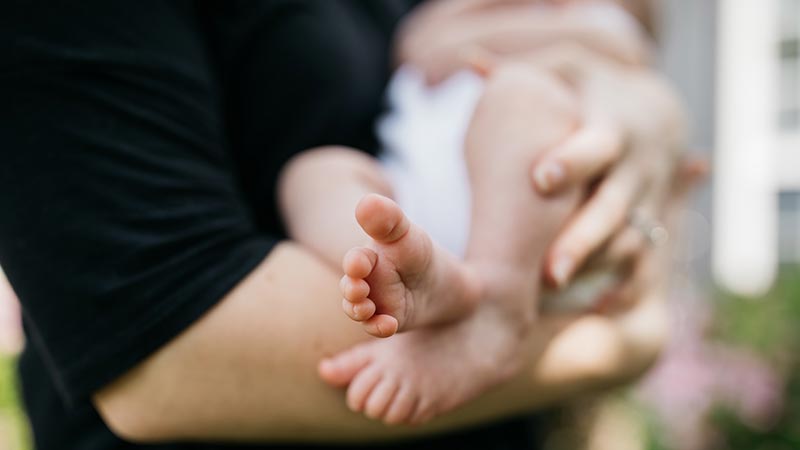
It’s natural for nursing mothers to be concerned about their diets because what they consume is passed onto their baby through their milk.
Lots of nursing mothers want to make sure they are getting enough macro and micronutrients to ensure they will stay healthy and their baby will continue to grow and develop in the best way possible. But are green powders the answer?
Green powders perfect supplement for new mothers?
A lot of breastfeeding mothers think about turning to green powders to give them the nutrients they need. This is definitely the case if they were taking green powders as part of their diet before they became pregnant. It might seem like a great idea, and it would certainly give the nursing mother the energy boost needed, but it’s not normally such a good idea for the new baby.
Due to the variety of ingredients within green powders and the strong powers they have, it’s not recommended that nursing mothers consume green powders while breastfeeding, just the same as it’s not recommended to pregnant women either.
There are a select few brands that produce supplements suitable for breastfeeding mothers, but the majority don’t advise taking their powders during this time in order to ensure there’s no risk to the baby.
Is SuperGreen TONIK safe to consume while breastfeeding?
We strongly advise against taking our greens powder when breastfeeding due to adaptogens in the formula we have. They can be passed through to the new baby and could cause complications with growth and development.
Other brand’s powders might be suitable for breastfeeding mothers, however, we recommend checking with the manufacturer yourself, before taking anything. It’s also advised to talk to a doctor before taking any new supplements while nursing.

Is Wheatgrass the go-to superfood for nursing mothers?
There’s been a lot of noise around the ingredient Wheatgrass. Some say that it’s the best superfood for nursing mothers, and others strongly disagree. The main benefit of consuming wheatgrass whilst breastfeeding is that it removes toxins from the breastmilk. However, this is not proven as there has been no scientific research on it.
So, what do the experts say?
When thinking about consuming wheatgrass or a supplement containing wheatgrass whilst breastfeeding, it’s recommended to take caution. Nursing mothers should completely avoid consuming juiced or raw wheatgrass.
This is because wheatgrass is grown either in soil or water, and there is a risk of contamination and bacteria. (1) Similar to barley grass, there can be an issue for mothers who have gluten sensitivity.
Not only could this make the mother ill, but it could cause problems for the baby through the breastmilk.
Wheatgrass is a stronger ingredient than most people expect, and it can also cause side effects that can last for up to two weeks (2):
- nausea
- headache
- constipation
- upset stomach
- fever
Like any supplement, natural or herbal ingredient, it’s always advised to discuss with a doctor before taking anything, especially as a breastfeeding mother.
What should nursing mothers take to ensure a nutrient-rich diet?
Breastfeeding mothers aren’t normally advised to take any additional substances, but they should be eating a healthy, balanced diet. The mother should then be receiving the correct amount of minerals, vitamins, and nutrients needed to keep herself and the baby healthy.
Foods that are recommended to consume whilst breastfeeding are (3):
- Fish and seafood: Salmon, seaweed, shellfish, and sardines.
- Meat: Beef, lamb, pork and organ meats.
- Fruits and vegetables: Berries, tomatoes, cabbage, kale, garlic, and broccoli.
- Nuts and seeds: Almonds, walnuts, chia seeds, hemp seeds, and flaxseeds.
- Other foods: Eggs, oats, potatoes, quinoa, buckwheat, and dark chocolate.
Foods containing high amounts of sugar, saturated fats, and all processed foods should be avoided.
The only supplement that is always recommended is Vitamin D. Vitamin D is really essential to a baby’s health. They need Vitamin D to support growth and development, as well as supporting the development of teeth and strong bones.
If a baby doesn’t receive the correct amount of Vitamin D, they will have vitamin D deficiency. If the levels of Vitamin D are not brought up to the desired amount and become lower and lower, the baby could suffer from rickets. This is a disease that affects the way bones develop.
Essentially, as long as a breastfeeding mother has a balanced diet and ensures she isn’t deficient in any necessary vitamins and minerals, the baby should grow and develop as expected.
If you are a breastfeeding mother and concerned about diet or your baby’s development, speak to your doctor before taking any supplements.
References +
- https://wheatgrasslove.com/blogs/the-wheatgrasslove-blog/supplements-that-are-safe-for-nursing-mom
- https://www.healthline.com/health/food-nutrition/wheatgrass-benefits#diabetes
- https://www.healthline.com/nutrition/breastfeeding-diet-101#section3
